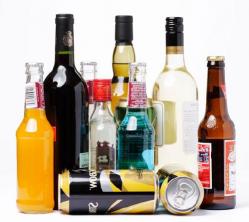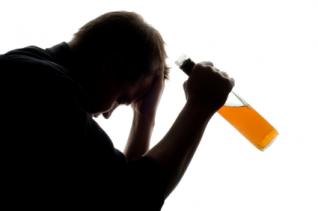Alcohol Awareness
This page is dedicated to increasing awareness about the consumption of alcohol and providing information to decrease the incidents of alcohol poisoning. If you, or someone you know, has a problem with alcohol consumption, please refer to these resources:
Massachusetts Substance Abuse Information and Education
(800) 327-5050
http://www.helpline-online.com/
Alcoholics Anonymous - Worcester Area Intergroup Inc.
(508) 752 - 9000
http://www.aaworcester.org/
www.aa.org
This is an overview. For further information on alcohol awareness and problem drinking, click here.
What is Alcoholism?
Alcoholism is a disease in which a person becomes dependent on alcohol and in which a person's alcoholic consumption becomes compulsive and out of control. There are different levels of alcoholism. Binge drinking is when a person drinks an excessive amount in one session in an attempt to get drunk. Alcohol abuse is when a person continues excessive alcohol consumption despite the fact that alcohol has begun to cause personal, legal, financial or social problems. Alcohol dependence is when a person begins to crave alcohol without control, when a person's tolerance level for alcohol increases and / or when a person has withdrawal symptoms when the effects of alcohol wear off.
There is strong research that a history of alcoholism in a person's family can cause a greater risk that that person may develop a problem with alcohol.
Alcoholism Symptoms
- Being unable to limit the amount of alcohol you drink.
- Feeling a strong need or compulsion to drink.
- Developing tolerance to alcohol so that you need increasing amounts to feel its effects.
- Having legal problems or problems with relationships, employment or finances due to drinking.
- Drinking alone or in secret.
- Experiencing physical withdrawal symptoms, such as nausea, sweating and shaking, when you don't drink.
- Not remembering conversations or commitments, sometimes referred to as "blacking out".
- Making a ritual of having drinks at certain times and becoming annoyed when this ritual is disturbed or questioned.
- Losing interest in activities and hobbies that used to bring you pleasure.
- Irritability when your usual drinking time nears, especially if alcohol isn't available.
- Keeping alcohol in unlikely places at home, at work or in your car.
- Gulping drinks, ordering doubles, becoming intoxicated intentionally to feel good or drinking to feel "normal".
Could you have a problem with alcohol?
- Do you lose time from school or work due to drinking or hangovers?
- Is drinking affecting your reputation?
- Do you ever feel guilty about your drinking?
- Have you ever done something drunk that you would not have done if you were sober?
- Do you find that you wish to continue drinking after your friends say they have had enough?
- Has anyone suggested you may have a problem with alcohol?
- Does your drinking make you careless of your friends' welfare?
- Do you drink alone?
- Do you drink before a party to get a head start?
- Have you ever had a blackout (can't remember parts of the evening)?
- Do you drink to build self-confidence?
- Have you ever been to a doctor or counselor because of drinking?
- Do you drink to escape worries or troubles?
- Have you had periods where you told yourself or others that you would cut down, but didn't?
- Have you ever felt out of control with how much or how often you drink?
- Do you have alcoholism in your family?
- Have you experimented or used other drugs?
- Do you drink consistently at a certain time of the day or week?
- Do you hide or lie about how much or how often you drink?
If you answered yes to 3 or more of these questions, you may have a problem with alcohol. If you answered yes to more than 6, you most likely do have a problem.
 Alcohol Poisoning
Alcohol Poisoning
Alcohol poisoning occurs when a person is highly intoxicated. This situation should be considered and treated as a potential medical emergency. Alcohol poisoning is a serious issue – it does happen – IT CAN BE DEADLY!
- Alcohol is categorized as a drug and acts as a depressant.
- Alcohol tends to slow down many of the functions of the body such as blood pressure, heart rate and breathing.
- The body can only oxidize on ounce of alcohol per hour (one drink).
What should you do if you think someone might be suffering from alcohol poisoning?
- Try to wake them.
- Turn the person on their side (keep their airway open).
- Do not leave them other than to phone for help.
- Check skin color and temperature (Are they pale? Is their skin cold or clammy? If so, get help immediately!)
- Check the person’s breathing (if there are fewer than 8 breaths per minute or more than 10 seconds between breaths – call for help!)
- There are no absolutes with alcohol poisoning. If you find someone who appears to be highly intoxicated, don’t take a chance that they may be okay…call for help!
Call for help when a person...
- is having difficulty breathing.
- is vomiting.
- has passed out.
- is injured.
- has a fever or the chills, feels cold, or is pale, sweaty or bluish in color.
- is acting in a way that may cause harm to themselves or others.
- seems to be paranoid.
- is having difficulty speaking or standing.
Never!!!
- NEVER put an intoxicated person in a cold shower. The shock of the cold could cause them to become unconscious.
- NEVER give an intoxicated person food, liquid, or medicine in an attempt to sober them up. They may vomit or choke.
- NEVER allow an intoxicated person to exercise. They could injure themselves.
- NEVER laugh at, make fun of, or tease an intoxicated person. Alcohol can make a person feel invincible. This may cause the person to become violent or do something dangerous.
- NEVER allow an intoxicated person to drive a car or any other type of vehicle.
- NEVER allow an intoxicated person to walk home.

